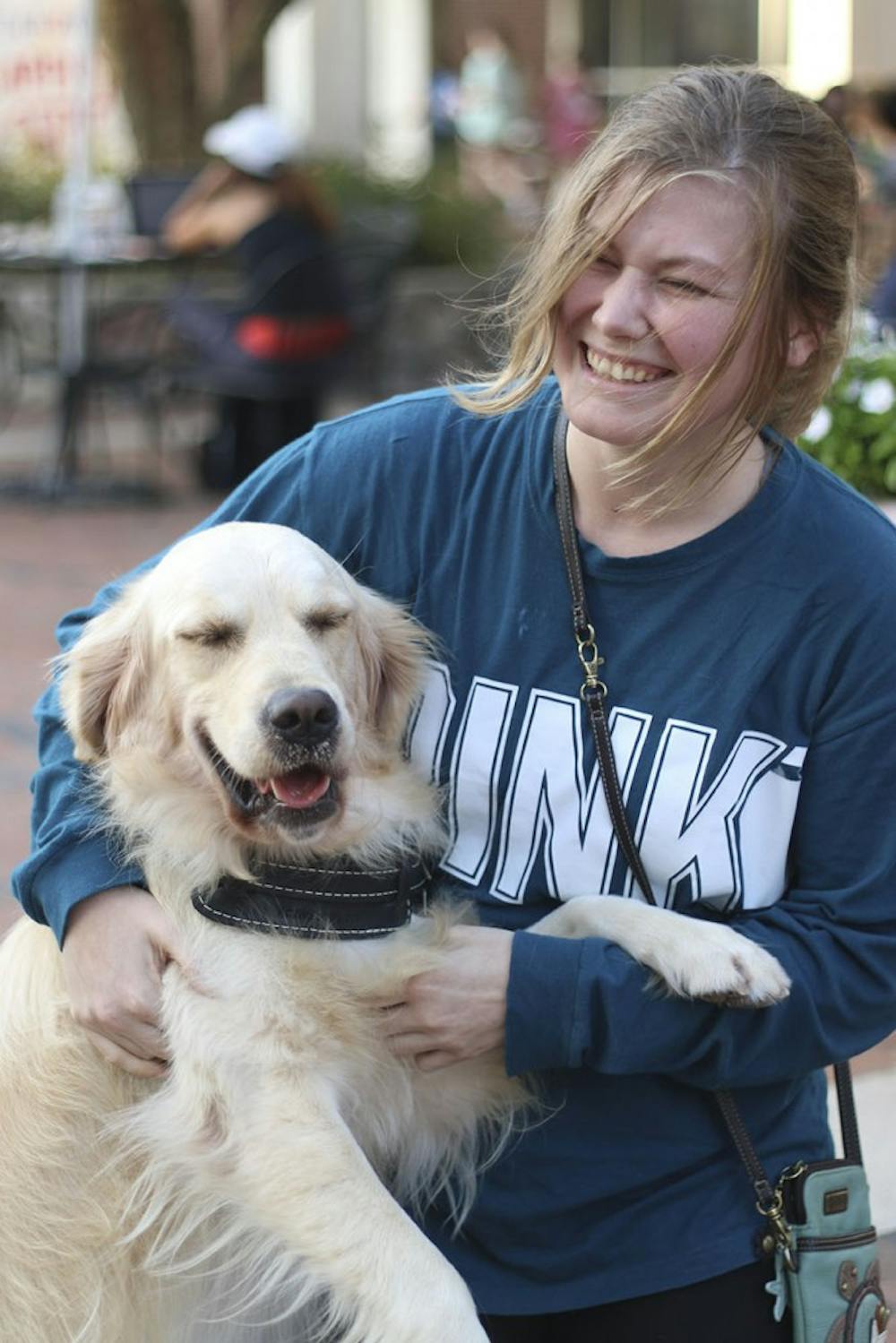Phoebe is a service dog who has been with Ortiz at UNC for three semesters now.
“Before I got her, I came here for one semester and had to leave because (of) my disabilities,” Ortiz said. “I couldn’t function really or like barely scraping by, so I took off.”
Simon Bloor, assistant director of Accessibility Resources and Service, said his office helps students with service animals on campus within legal parameters, but his office doesn’t have to be involved because it is a federally mandated right to have a service animal.
“Our office really is to assist with easing or facilitating that use for the student so that they feel comfortable and confident in the use of a service animal across campus,” Bloor said.
Sophomore Jackie Larrauri is in the process of getting a guide dog, which is a type of service dog.
“Guide dogs are given to mainly people who can’t see at all or have light perception,” Larrauri said.
Larrauri said one of the first steps in the process of getting a service dog through The Seeing Eye, a guide dog training program, is explaining why you want a service dog.
“So when I have my cane, the cane is trained to find chairs and obstacles and hit them, whereas a guide dog is just going to go around those obstacles,” Larrauri said.




